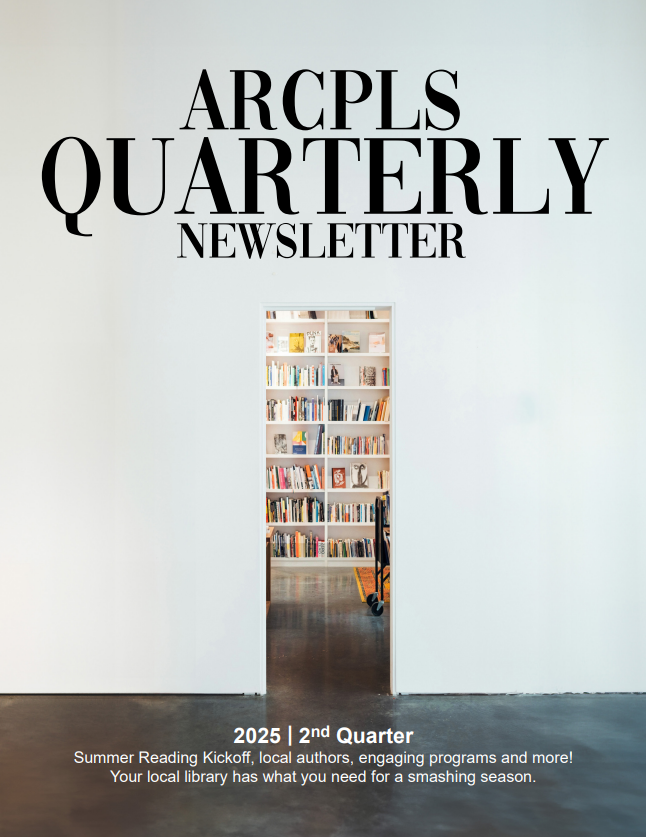About the Georgia Heritage Room
![]()
Welcome to the Augusta-Richmond County Public Library Georgia Heritage Room
The Georgia Heritage Room, located at the Headquarters Library, houses an extensive historical and genealogical collection. The purpose of the Georgia Heritage Room is to develop and maintain an in-depth collection of materials having lasting historical and genealogical value to support the informational, educational, and research needs of its users which consist of students, historians, genealogists and Augusta-Richmond County citizens as well as visitors.
The Georgia Heritage Room serves the needs of a broad spectrum of users with diverse informational and educational pursuits. The collection is for reference and research purposes and does not circulate. Resources concerning Augusta-Richmond County and Georgia will be of primary importance, with an emphasis on genealogical and historical materials relating to the southeastern United States. Geographic and subject coverage of these materials reflect and support the migration patterns of movement to and from Georgia. The collection also includes national genealogical and historical resources such as selected Northern sources. Historical materials selected reflect diverse points of view. These materials include church histories, state and county histories, personal narratives, diaries and letters or any other accounts of events which have affected the history of the United States. Records documenting United States military involvement since the Revolutionary War with a concentration on the Civil War are part of the print collection as well.
Books by local authors, about subjects other than local history will be added to the collection selectively to preserve a copy of their work. The greatest consideration is given to Augusta-Richmond County authors. As a practical definition, Augusta-Richmond County or Georgia authors are those who have lived in the county or state for a significant period of time. No attempt will be made to form a collection of works by southeastern authors as such. The collection will contain some materials of current usefulness and those of historical use such as Georgia travel guides, Georgia customs and family life, as well as books about native plants or animals.
Visiting the Georgia Room |
Resources |
Services |
Contact Us |
Donations |
Starting Your Family History |
Visiting the Georgia Room
Visiting the Georgia Room
The Georgia Heritage Room of the Augusta-Richmond County Public Library System (ARCPLS) is located on the third floor of the Headquarters Library at 823 Telfair Street, Augusta, Georgia 30901. Our hours of operations are Monday – Friday, 9:00 AM to 5:00 PM. Phone: 706-826-1511
Using materials
Materials in the Georgia Room are not available for check out and can only be used in the Georgia Room.
Please do not re-shelve materials. Place materials on the tables or the book truck when you are finished with them. This allows the staff to get an accurate count of how often a particular item is used.
Computer Usage
Public computers in the Georgia Room are for use by library patrons who are conducting research on genealogy and/or local history only.
For more information on ARCPLS computer use see Internet and Computer use on the ABOUT US tab of the library’s website at www.arcpls.org
Copying
Due to the fragile nature of our materials, books cannot be placed on the copier for copies. Feel free to take photographs of the information or make notes. Scrap paper is available upon request.
Copies are $0.25 a page for black and white and $2.00 a page for color.
Resources
Print resources at the Georgia Room include, but are not limited to
- Elliot Funeral Home Index
- Family histories, county histories, and cemetery indexes
- Augusta City Directories 1841 to present (some years missing)
- Civil War rosters for Georgia, South Carolina, North Carolina, Mississippi, Virginia, and Texas.
- Index of Revolutionary War Pension Applications
- Colonial Records of Georgia
- County maps
- State genealogy periodicals
- Georgia Death and Marriage indexes
- Local High School Yearbook Collection
Please follow the link to a more complete inventory of print resources from each Georgia county.
Georgia Genealogy & Local history resources (PDF)
Electronic resources available at the Augusta Richmond County Library System.
- Ancestry Library Edition (only available via ARCPLS public computers and Wi-Fi).
- Heritage Quest (available for in-home use through GALILEO with a current PINES library card in good standing).
- Family Search Affiliate Library (available for accessing locked records in FamilySearch.org, Georgia Room only).
- The Augusta Chronicle historic and current databases. This provides access to the complete run of The Augusta Chronicle from 1792 to the present (Richmond County PINES library card is required).
- Other databases available through GALILEO of interest to genealogists and local historians are the American Antiquarian Society (AAS) Historical Periodicals Series 1-5, Voyages: The Trans-Atlantic Slave Database, 231 genealogy journals and thousands of history journals (available for in-home use with a current library card in good standing).
- Saving the Voices of Augusta’s Past
- WWI Veterans List
- Augusta Vital Records Database Search
- Georgia Genealogy and Local History Resources in the Georgia Room
- Georgia Room Manuscript Finding Aids
Other suggested electronic resources freely available on the Web
- The Digital Library of Georgia (DLG)
- African-American Funeral Programs from the Augusta Richmond County Public Library System (available through the DLG)
- Georgia Historical Newspapers (available through the DLG)
- Augusta Focus 1995-2007
- The Augusta Herald 1898-1908
- The Augusta Daily Herald 1908-1914
- The Augusta Herald 1914-1924
- The Augusta News Review 1972-1985
- The News Review 1971-1972
- And many more…
- The Graveside Project (covers Augusta city cemeteries)
- Digital Public Library of America
- FamilySearch
- Find-A-Grave
Georgia Heritage Room Microfilm Holdings (PDF)
Georgia Heritage Room Archives & Special Collections
The Georgia Room of the Augusta-Richmond County Public Library System (ARCPLS) falls under the umbrella of the information services department at the Headquarters Library at 823 Telfair Street in downtown Augusta, Georgia. In addition to providing local history and genealogy reference and research services, the Georgia Room houses a special collections department dedicated to the acquisition, arrangement, preservation, and accessibility of primary source materials and historic records.
The goal is to provide access to unique collections that enhance and build upon the rich history of Augusta, Georgia and the larger Central Savannah River Area (CSRA). The collections encompass an eclectic mix of historical materials in the form of postcards, stereographs, photographs, maps, architectural blueprints, letters, manuscripts, textiles, sound recordings, and more.
The Georgia Room Archives & Special Collections is also the repository for the institutional history of the Augusta-Richmond County Public Library System, the former East Central Georgia Regional Library System, and its predecessor the Young Men’s Library Association, founded in 1848.
Historical Context Statement
ARCPLS and the Georgia Heritage Room acknowledge that researchers may come across items in the collections that contain objectionable language and/or images. Such materials chronicle the past and should be understood according to the time period from which they were created.
ARCPLS is committed to providing free and open access to all materials in its collection but does not condone or support the attitudes, prejudices, or behaviors found within.
Georgia Room Archives & Special Collections Finding Aids
Finding aids
To access special collections materials please call the Georgia Room at 706-926-1511 or email genealogy@arcpls.org for appointment.
Search ARCPLS digitized collections in the Digital Library of Georgia
https://dlg.usg.edu/institutions
Services
Research Requests
The Georgia Heritage Room encourages in-house study with the advantage of full access to our collection and the library’s resources, but recognizes the need for out-of-town researchers to also have access to our collection. It is our objective to provide services to those researchers living out-of-town and to residents unable, for whatever reason, to conduct their own in-house research. However, with limited staff the Georgia Heritage Room cannot take on extensive research projects, nor will the staff conduct your genealogical research for you. We do however offer guidance and an effort will be made to teach patrons to use the collection and to provide self-help materials for reference use. Information regarding courses and programs on the subjects of genealogy and local history, and groups or individuals specializing in certain areas of those subjects will be made available to patrons.
The Georgia Heritage Room charges a rate of $5.00 for ready reference requests, including obituary, city directory (for checking one name in one to five years of the directories) and newspaper lookups. For example, if you request one obituary and one newspaper article, your charge is $10.00. Copying fees as well as postage and handling are included.
Please be very specific with your question. For example, when requesting an obituary from the Augusta Chronicle, please include the first and last name of the individual, death date and when possible the citation date and page number.
Requests requiring longer than twenty (20) minutes to search are considered formal research queries and are subject to an hourly rate of $15.00 for residents of Richmond County, and $20.00 for out-of-town non-residents, with a search limit of three hours. Charges apply to the actual search regardless of whether the information is located. The requestor will receive a list of all resources used in pursuit of the request. If your research exceeds the limits of our time and/or resources, please consider hiring a professional genealogist.
https://gagensociety.org/research/researchers-for-hire/
Payment will be made by personal check or money order to Augusta-Richmond County Public Library System.
All research requests should be sent in writing to the address below, via email or submitted through the online form provided under the “Contact Us” heading.
Augusta-Richmond County Public Library
Georgia Heritage Room
823 Telfair Street
Augusta, Georgia 30901
FamilySearch Affiliate Library
In January 2015, the Augusta-Richmond County Public Library became a FamilySearch affiliate library. This designation means library patrons have greater and more convenient access to the wealth of genealogical resources available through Family Search.
FamilySearch is the world’s largest repository of free genealogical records and manages the famous Family History Library in Salt Lake City, Utah. It has amassed billions of birth, marriage, death, census, land and court records of genealogical significance over 130 countries.
FamilySearch International is a nonprofit, volunteer driven organization sponsored by the Church of Jesus Christ of Latter-Day Saints. Millions of people use FamilySearch records, resources, and services to learn more about their family history. To help in this great pursuit, FamilySearch has been actively gathering, preserving, and sharing genealogical records worldwide for over 100 years. Patrons may access FamilySearch services free online at FamilySearch.org or through 4, 600 family history centers in 132 countries of which Augusta-Richmond County Public Library is a part.
Please call, email or visit the Georgia Heritage Room for more details about the FamilySearch affiliate library program. Please begin the process by creating a free account at FamilySearch.org.
Contact Us
You can also submit your questions to us by filling out this online form:
Document Request form (PDF)
Donations
Book materials requested by patrons and that relate to the collection are considered for possible purchase. The Georgia Heritage Room does not purchase individual family histories, but does accept them as donations.
The terms for donation are spelled out in the Georgia Room’s deed of gift form
Most of the materials in the Georgia Heritage Room collection are in book form. Other formats include maps, photographs, sound recordings, microforms, clippings, unbound papers and documents, manuscripts, letters, newspapers, and textiles.
The Georgia Heritage Room welcomes the chance to add your donations to our collection. Please schedule an appointment to discuss your donation either by email genealogy@arcpls.org or by telephone at 706-826-1511. Our deed of gift is available for your information
Deed of Gift (PDF)
Starting your family History
How to Begin Your Family History
Please take advantage of our beginner genealogy tutorials by calling (706) 826-1511 or to set up an appointment for one-on-one help. Below are some pointers to help you begin growing your family tree.
Get Organized
- Use materials that work for you and are based on your needs: notebooks, binders, file cards, filing cabinets, genealogy forms, sheet protectors, pencils, tablet, laptop, smart phone, etc. (Link to Genealogy Forms)
- You are not going to remember the details. From the start, teach yourself to write everything down and organize the information so that it can be found again.
- Consider using genealogy software. Legacy Family Tree, Family Tree Maker, RootsMagic, Family Historian are some great options.
- Print out free genealogy forms. See the link below.
Pedigree chart (PDF)
Family Group (PDF)
What to Seek
- Names (spellings and names can change; people may use nicknames; people marry and remarry – write down all the possible variations).
- Event Dates (birth, marriage, and death).
- Places (where was your ancestor born, where did they live, and where did they die).
- Relationships
First Things First
Always start with yourself and work backwards, through your parents and then grandparents. Collect the following information from your home and relatives:
- Birth, marriage, death, and divorce certificates.
- Wills and other probate records
- Military records
- School records
- Medical records
- Newspaper clippings
- Bible records
- Family pictures
- Letters or other correspondence
- Funeral programs
- Diaries
Now fill out ancestor charts (pedigree charts) and family group sheets as completely as you can with the information you have collected. These forms can be found online for free. USE A PENCIL! Leave anything you don’t know blank. Genealogy databases such as Ancestry.com and FamilySearch.org can help you fill in the blanks. But remember, not all records are digitized (only about 5%) so searching for clues about your ancestors may require travel to county courthouses, cemeteries, genealogy societies, and libraries. Here are some helpful tips as you begin your search:
- Never skip a generation
- Work backwards from the known to the unknown
- You may miss valuable clues and family names if you do not work with every ancestor on your pedigree chart. Trying to search in a straight line from ancestor to ancestor can result in missed clues. Branch out and explore the relationships of your ancestors.
- It is important to be open-minded about the spelling of names. Family names can be spelled in different ways on records, even on the same record, and human errors do occur.
- People may not know or give their correct age when replying to census or survey questions.
Gather Family Records
- Locate birth, marriage, death, land, probate, obituaries, letters, journals, family bibles, school yearbooks, church records, and anything you can find that might help tell the story of your ancestor(s).
- Contact all known relatives to see if they have records. Write down and record family stories. Ask to make photocopies of documents and photographs. Offer to pay for postage.
- Conduct oral interviews with elder family member. If the relative is willing, record the interview with a smart phone or handheld recording device.
- Some relatives may be reluctant to discuss family information that they find embarrassing or distressful. Do not be embarrassed about your relatives. Every family has member who have acted poorly, but be respectful of family members who do not desire to talk for whatever reason. Never press your family members to talk if it’s uncomfortable for them. Your relationship is more important than the genealogy.
- While some family stories may be distorted after being passed down through several generations, they may contain elements of truth and provide some good clues.
Geographical and Historical Details
- It is difficult to do research unless you know the geographic location. You will probably want to know the jurisdiction of courts, city and county boundaries, and other details. These can sometime change depending on the year of the event.
- Maps, Atlases, and Gazetteers are good resources
- Learn as much as you can about the time period and the history of the area. Human beings do not live in a vacuum, they are shaped by the times in which they live. Learning this adds richness to your ancestors’ lives.
- Find out when various records were originated in the area and what happened to them. For examples, during the Civil War many courthouses in the South were burned, destroying thousands of records.
Prove the Facts as You Go
- Each live event should be documented with original papers such as census records and vital records (birth, marriage, divorce, death) obituaries, and cemetery records. Use Research Logs to record this information.
- Why? So you can record your family’s story as accurately as possible.
Check for Work Already Done
- Many family histories have been printed. Check library catalogs, including the Library of Congress and WorldCat.
- Use Interlibrary Loan to borrow books
- Check Ancestry.com and FamilySearch.org for family trees of your ancestors. But remember, some researchers may not be as accurate as you!
Records and Where to Find Them
- Vital Records – courthouses and churches, online.
- Census Records – libraries and online (1790 to 1950)
- Land and Probate Records – courthouses, libraries, genealogical societies, online
- Church Records – contact the church or diocese/denomination headquarters
- Cemeteries – Find-a-Grave
- Newspapers – online, library microfilm collections, university newspaper projects.
- Military Records – online, NARA, libraries and archives
- Personal papers, photographs, certificates – in the home, personal collections, library archives.
Consider joining a local genealogical or historical society or contact the ones in the area you are interested in researching. Also, become familiar with the libraries in the area you are researching, and find out what resources are available to you. All of these organizations have immense knowledge of the area, what records are available, and where to find them. They are all a wonderful resource!
Augusta Genealogical Society
1058 Claussen Road
Suite 108
Augusta, Georgia 30909
(706) 722-4073
www.augustagensociety.org
Augusta-Richmond County Historical Society
2500 Walton Way (Reese Library at Augusta University)
Augusta, Georgia 30904
(706) 737-1532
www.thearchs.org
Georgia Genealogical Society
P.O. Box 550247
Atlanta, Georgia
www.gagensociety.org
Georgia Historical Society
104 W. Gaston Street
Savannah, Georgia 30401
(877) 424-4789
www.georgiahistory.org





